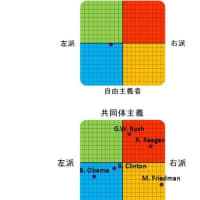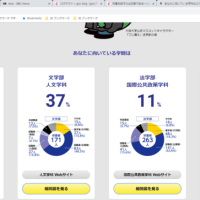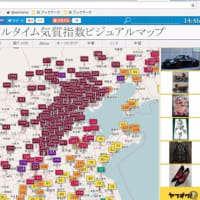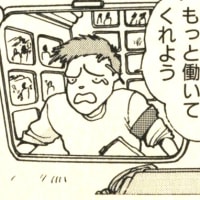記事タイトルは「最新の犠牲者:オーストラリアのホームレス危機」。これはマリーが思ってたような老後じゃない―との書き出し。
BBC The newest victims of Australia's homelessness crisis 7 days ago
Katy Watson
家政婦なんかやったりして地道に稼いできたそこらの並のばーさん。夫はアルツハイマーを患ってホーム入り。そしたらここ数年の住宅危機の流れか、住んでるアパートを出ろ!と大家に要求された。年金暮らしのばあさんを延々入れておくより、リノベして、短期の若いのを回転よくしたほうがカネが儲かる…!
「This isn’t the retirement that Mary had dreamed of.
The former midwife spent years living on a cattle station with her husband on the north-western edge of Australia - outside her window, the vast and ruggedly beautiful Kimberley region.
Now, though, the frail 71-year-old spends most of her days and nights in her battered car. Her current view is the public toilet block of a Perth shopping centre.
Mary is not her real name. She does not want people she knows to find out she is living like this.」
でまあ、マリ―(仮名)は残された財産=車一台を家屋代わりにそこらを流して歩くだけ。こりゃあ、そりゃあ…こんなはずじゃなかったと言いたくなる…。
「That’s what happened to Mary. Pushed out of her flat last year when her landlord opted to lease it for short-term stays, she couldn’t find anywhere affordable on her state pension.」
おんなこども、原住民は割とわかりやすい弱者だが、その他の弱者属性―老人―をもっていれば、そりゃあやっぱり弱いのである。この人については「老人」「女」で、しっかとした財産がない場合。
「Homelessness services around Australia have reported a jump in demand amid a national housing crisis – with women and children the clear majority of those needing help. Indigenous Australians are over-represented too.
In recent years, record house prices, underinvestment in social housing, a general shortage of homes and drastically climbing rents, have left much of the nation’s growing population struggling to find a place to live.」
そんなわけで、家一軒がそこらの並の人間の年収9年分とかになっちゃったハウジング・クライシスの一側面のお話。…私の住んでる地域だと、新築一戸建ては3200万くらいかな。ちょっと危うい値段よねえ。まあまあのランクの労働者の4~6年くらいかな。
BBC The newest victims of Australia's homelessness crisis 7 days ago
Katy Watson
家政婦なんかやったりして地道に稼いできたそこらの並のばーさん。夫はアルツハイマーを患ってホーム入り。そしたらここ数年の住宅危機の流れか、住んでるアパートを出ろ!と大家に要求された。年金暮らしのばあさんを延々入れておくより、リノベして、短期の若いのを回転よくしたほうがカネが儲かる…!
「This isn’t the retirement that Mary had dreamed of.
The former midwife spent years living on a cattle station with her husband on the north-western edge of Australia - outside her window, the vast and ruggedly beautiful Kimberley region.
Now, though, the frail 71-year-old spends most of her days and nights in her battered car. Her current view is the public toilet block of a Perth shopping centre.
Mary is not her real name. She does not want people she knows to find out she is living like this.」
でまあ、マリ―(仮名)は残された財産=車一台を家屋代わりにそこらを流して歩くだけ。こりゃあ、そりゃあ…こんなはずじゃなかったと言いたくなる…。
「That’s what happened to Mary. Pushed out of her flat last year when her landlord opted to lease it for short-term stays, she couldn’t find anywhere affordable on her state pension.」
おんなこども、原住民は割とわかりやすい弱者だが、その他の弱者属性―老人―をもっていれば、そりゃあやっぱり弱いのである。この人については「老人」「女」で、しっかとした財産がない場合。
「Homelessness services around Australia have reported a jump in demand amid a national housing crisis – with women and children the clear majority of those needing help. Indigenous Australians are over-represented too.
In recent years, record house prices, underinvestment in social housing, a general shortage of homes and drastically climbing rents, have left much of the nation’s growing population struggling to find a place to live.」
そんなわけで、家一軒がそこらの並の人間の年収9年分とかになっちゃったハウジング・クライシスの一側面のお話。…私の住んでる地域だと、新築一戸建ては3200万くらいかな。ちょっと危うい値段よねえ。まあまあのランクの労働者の4~6年くらいかな。

























※コメント投稿者のブログIDはブログ作成者のみに通知されます